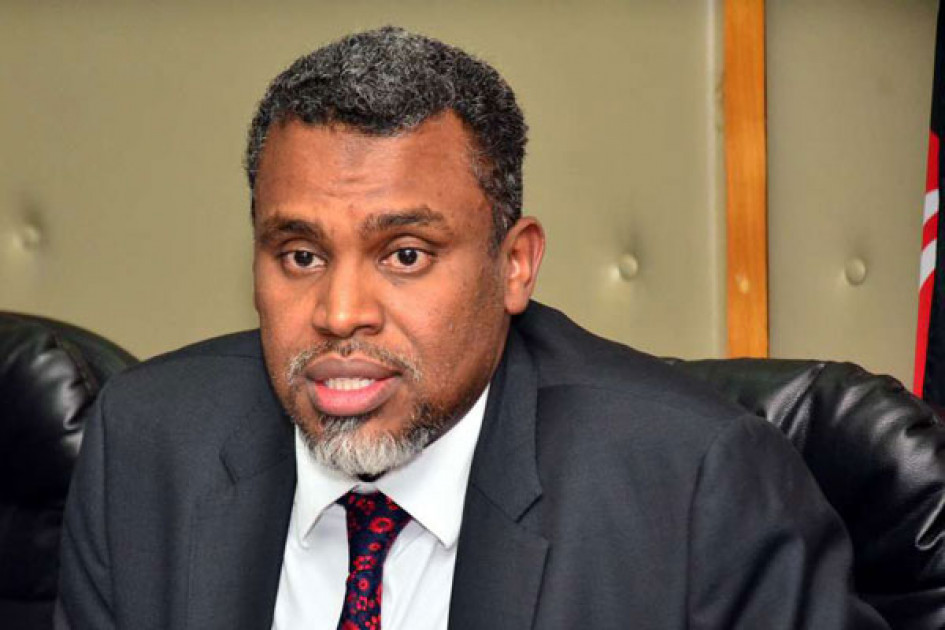Complaints panel to be formed for State Intelligence

The National Intelligence Service (NIS) officers will be more accountable for their actions following the establishment of a complaints board.
The service operates in secrecy and its budget, staffing, operations remain a secret but the board will ensure that it discharges its work transparently, with accountability and also ensure that the officers do not exercise their powers arbitrarily.
The Public Service Commission (PSC) has advertised for the positions of chairman and members of the Intelligence Service Complaints Board (ISCB) to operationalise it.
Section 66 of the NIS Service Act, 2012, creates the board comprising the Chairman and members of the ISCB. The chairman must have legal background and must have at least ten years’ experience as a distinguished academic or legal practitioner or such experience in other relevant legal fields.
The members include an advocate of the High Court, a retired senior intelligence officer, and any officer who has served in the public service.
This is the third attempt to create an office that will be tasked with receiving and inquiring into complaints against the NIS, its Director General Noordin Haji and any other member of the Service.
Most of the attention with respect to accountability has been on the police.
During his vetting process by Parliament, the current NIS director general promised to make the service more accountable and professional by operationalising the ISCB that is tasked with receiving and inquiring into complaints against the NIS.
“I will go and look at why there have been delays to operationalise it. That will be one way of dealing with complaints against officers adequately. What I want to assure the committee is that I will ensure that NIS observes the Constitution and the rule of law,” Haji said on May 31, 2023.
Some autonomy
The spymaster had admitted before the National Assembly committee that at least one NIS officer had been involved in a case of extrajudicial killing.
The country’s security intelligence system has undergone tremendous changes, from when it was an extension of the Executive to now when it enjoys an extended degree of autonomy.
Though there is only one known case of extrajudicial killing where a NIS officer together with a Kenya Wildlife Service (KWS) officer and other officers from the defunct DCI’s Special Services Unit (SSU) were charged in court for the abduction and disappearance of two Indian nationals and their taxi driver, reports by human rights organisations indicate that some officers from the service have been involved in underhand activities.
The NIS Act requires the officers to observe and uphold the Bill of Rights and the values and principles of good governance. However, most Kenyans are not aware of any mechanisms for lodging complaints against intelligence officers despite these constitutional requirements.
The government is now expected to provide the board with necessary financial and administrative support and most importantly, ensure protection of witnesses when they report cases of violation against NIS officers.
The Board is expected to help ensure that such powers are used in accordance with national and international law.
According to the Centre for Human Rights and Policy Studies (CHRIPS), the law gives intelligence agencies discretion in their use of powers, which, if not checked, can be misused and result in widespread violation of human rights.
This secrecy around its operations shields it from public accountability and therefore the need for accountability by independent bodies to ensure their actions are in compliance with the law, according to CHRIPS.
‘Secret’ service
The main functions of the NIS are security intelligence and counter-intelligence to enhance national security. It is a disciplined civilian service with seven divisions, each headed by a director.
The NIS also collects intelligence to be shared with relevant state agencies, detects and identifies threats or potential threats to national security, advises the president and government of any threat or potential threat to national security and undertakes security vetting.
They also support and aid law-enforcement agencies in detecting and preventing serious crimes and other threats to national security, make recommendations to the National Security Council on policies concerning security intelligence.
The NIS divisions include the internal intelligence (for gathering domestic intelligence), External intelligence (for gathering foreign intelligence), and Counter-intelligence (for gathering and performing counter-intelligence).
Others are the Administration, IT, Operations, Analysis and production and the National Intelligence Academy.
However, NIS does not carry out police functions, undertake paramilitary activities, or commit an act of violence against a person. They should also not undertake any activity for the purpose of furthering the interests of a political party or political organisation whether within or outside Kenya.
The other function would be to prevent disclosure of the operations of the Service and classified information, protect the identity of members of NIS and sources of information to the Service.
The NIS started as the Special Branch, which was formally created in 1952 and operated under the Commissioner of Police. It acted as a secret intelligence unit for the colonial government during the Mau Mau uprising.
In 1963, it was made independent from the Police Force, and its operations formalised through a Presidential charter in 1969.
In 1986, the Special Branch was transformed into the Directorate of Security Intelligence (DSI) through a Presidential charter, but the structures and organisation were retained.
In January 1999, the National Security Intelligence Service (NSIS) was created with the enactment of the National Security Intelligence Service Act, 1998.









